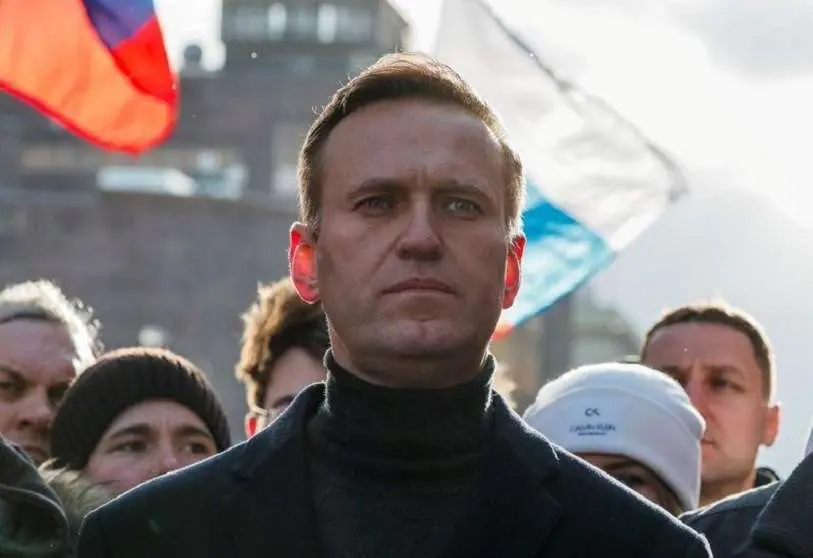Gaslight and Novichok: the Alexei Navalny case

The Portuguese playwright Saramago said that '"not everything that seems is, and not everything that is seems". If there is any place where this is verified, it is in Putin's Russia. The farcical episode of the poisoning of the Russian politician Navalny with the neurotoxic Novichok (a formula developed by the USSR during the Cold War to enable an improvised nerve agent to be made using commercial chemicals) has multiple potential interpretations and more than one possible "cui bono", probably as expected by whoever authorised the use of the poison.
The modus operandi in the Navalny case follows the pattern of the poisoning of Sergei and Yulia Skripal a couple of years ago in England, characterised by a disconcerting sequence of events which, by challenging the logic of the book (for its apparent accumulation of absurdities, contradictions and bottlenecks), sows doubts that allow plausible denial of authorship.
The chronology of the Nalvany case is worthy of a script by the surrealist film director José Luis Cuerda, with added elements of the ceremony of confusion that is the 1944 film 'Luz de gas'. The first thing that does not seem to be the case, at first glance, is that after the Russian secret services intended to assassinate Nalvany in Siberia, the Russian dissident is still alive in a Berlin hospital. As with the Skripals, it does not appear that the doses of Novichok used in both cases guarantee the death of those who are poisoned by it. As much as Seneca wrote that 'poison is served in a gold cup', the unfortunate Nalvany was poured into a disposable cup in an airport cafeteria where he drank tea while waiting to board a domestic flight. Once on the flight, Nalvany's indisposition led the Russian authorities to give the go-ahead for an emergency landing, which allowed him to be transferred to a hospital on Russian territory. It is doubtful whether Nalvany would have been able to survive if this landing had not been authorised.
Once admitted to a state clinic, he was stabilised, with no record of any attempt to end his life in the meantime, for example by interfering with the machines and catheters that were keeping him artificially alive. At the same time, the medical team in charge of him was in complete and public denial about the presence of toxins in Navalny's body. At this point, Putin agreed to Merkel's request through a third party to transfer the patient, in a German air ambulance previously moved to Siberia, to a prestigious Berlin hospital, where it was formally certified that Nalvany had been poisoned by Novichok, This probably derailed Germany's six-month presidency of the European Union and brought to the fore Norbert Röttgen, who aspires to succeed Angela Merkel as head of the CDU and is a staunch opponent of Nord Stream II, the pipeline developed to supply Russian natural gas to Germany and which the Trump administration is targeting.
The Navalny affair has secondary consequences for German interests in the medium term and is a headache for Merkel in the short term, though it is not clear whether the costs of a diplomatic escalation against Putin would be offset by a hypothetical rise to power of Navalny. The fact that the Russian opponent is actively combating Putin's system of institutionalised corruption does not necessarily make him favourable to Western interests. In fact, it may well be the opposite: Navalny is notoriously nationalist, founder of the "People's" movement, and in favour of the same idea of Greater Russia that Putin upholds, to the extent that he was a fervent supporter of the Russian intervention in Georgia in 2008, when he publicly and derisively called for the expulsion of Georgians from Russian territory, thereby endorsing the line defended by the ultra-nationalist "Anti-Immigration Movement". Similarly, Navalny has shown hostility towards the former Soviet-bloc countries that are leaning towards the West, and has given public backing to Russian separatist movements in both Moldova and Ukraine, having publicly undertaken not to return the Crimean peninsula to Ukraine when it reaches the Kremlin.
It is therefore not surprising that Merkel is cautious about managing a crisis that overlaps with that of Belarus and is resisting the pressure from both the White House and Germany itself for a cancellation or moratorium sine die of the Nord Stream II project, which is in its final phase. If this were to happen, Germany would lose strategic weight in its relations with Russia, whose main interest in the project is to reduce the volume of gas transferred through Ukraine and Poland in order to weaken both countries' negotiating capacity with the Russian state-owned company Gazprom and thereby increase their geostrategic influence on both.
The cancellation of the project would call into question Germany's own energy security and that of much of Central Europe, as there are no viable alternatives apart from creating a dependence on exports of American shale hydrocarbons and Gulf oil, since Germany proceeded to dismantle its network of nuclear power plants after the Fukushima accident. The precariousness of energy is a luxury that German industry cannot afford without losing competitiveness, a fact that has led to the mobilisation of the German business confederations and trade unions, whose demands cannot be ignored by the German government, nor by extension by the European Commission, which will presumably lead to a gradual downward modulation of the official anti-Putin rhetoric, which will be inversely proportional to the increase in friction in transatlantic relations.

